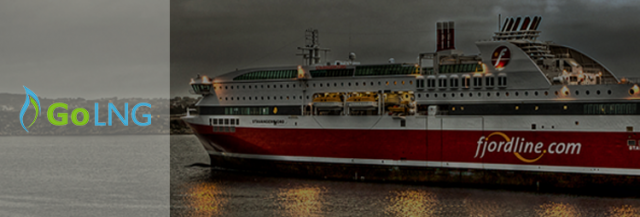The "Go LNG - Value chain for clean shipping, green ports and Blue growth in Baltic Sea Region" project is co-financed by INTERREG Baltic Sea Region Programme 2014-2020 from the European Regional Development Fund..

In spite of introducing the sulphur emission control area (SECA) in the Baltic Sea in 2015, still a bottleneck hindering further development of the liquefied natural gas (LNG) market is its low availability and high price. Shortages in infrastructure supplying LNG result in low demand for this fuel, which, in turn, influences the price of LNG. It is relatively high as the costs of investments in bunkering installation are shifted to a small number of end users. The costs may amount to 50% of the fuel cost. Currently, there are 50 vessels around the world powered with LNG and further 55 are contracted. An increase is expected in this number up to 100 in 2018 and 1000 in 2020. Certain perturbations may also be caused by a decrease in oil prices, which results in reduced attractiveness of LNG fuel and pushing the solutions related to environmental protection to a further place.
Thus, the main objective of the Go LNG project is elimination of the obstacles which block the development of LNG technologies in the area of the Baltic Sea through:
- decreasing the price and increasing the availability of LNG: Development of the demand and availability depends mainly on the number of end users. The project team will concentrate on promotion of LNG solutions and simultaneously looking for new recipients. A growing number of users will also influence the fuel unit price because new users will take over some of the investment costs.
- development of clean technologies: The cost of building vessels powered with LNG, due to advanced technologies, is 20 to 25% higher compared to units powered with traditional fuels (HFO - heavy fuel oil, MDO - marine diesel oil) also including scrubber. The aim of the project will be to spread these technologies to other types of transport, e.g. road, railway, which will help to reduce the cost of the elements used through an increase in their manufacturing.
- staff training: It is necessary to take care of social approval for LNG solutions. The risk related to the use of LNG as a fuel may be significantly reduced through proper operator trainings. As a part of the project, a training programme will be presented for seamen, port staff, transport enterprises, etc.
- ensuring durability of LNG solutions: It is important that LNG technologies and infrastructure are not related only to methane included in the natural gas extracted as a fossil fuel, but may equally successfully be used in the process of bunkering and burning of LBG (Liquefied Bio Gas – liquefied biomethane). Production of methane with the use of special processing of organic matter, including waste, is becoming increasingly popular and, unlike all fossil fuels, the confirmed reserves of which are bound to finish within several tens of years, it is not limited in time.
Information about the INTERREG financial programme may be found on the websites of the Baltic Sea Region Programme www.interreg-baltic.eu


